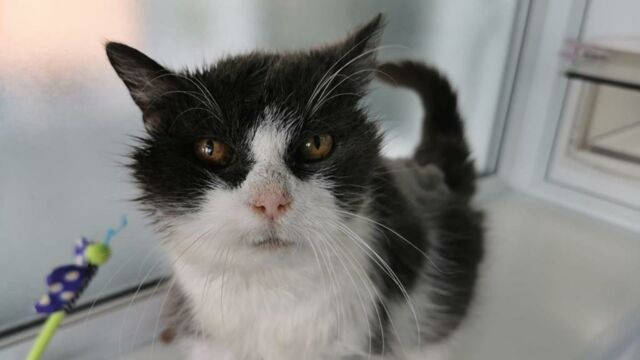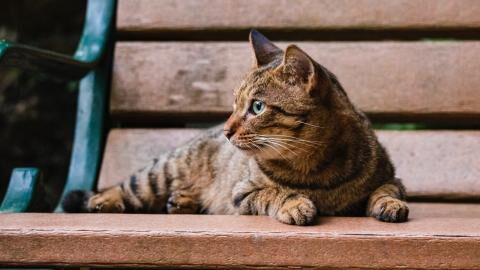Morag is the oldest cat that ever came into the care of RSPCA’s Worcester and Mid Worcestershire branch. She was given up by her previous owner and was somewhat of a challenge for the RSPCA to find a new home for her. No one at the centre thought that a retirement story of this cat would touch human hearts worldwide.
Discover our latest podcast
A happy ending
A lot of staff at the centre were worried that her advanced years will put off potential adopters, however, they were surprised by the tremendous response that came their way for 21-year-old Morag. Staff at the organisation issued an appeal, which resulted in a social media post being shared over 3,000 times to locate her unique retirement home. Morag is approximately 100 in human years and wanted to spend the rest of her days peacefully.
This beautiful senior kitty is Morag. Morag is a real golden girl, at an incredible 21 years young! Considering her...
Posted by RSPCA Worcester and Mid - Worcestershire Branch on Sunday, February 6, 2022
After her original owner was no longer able to care for her, people in Australia, Japan, and the United States expressed interest in adopting Morag. The international response had totally overwhelmed the RSPCA centre and many gifts had also been sent in for Morag. She now enjoys being with her new family near the Worcester rescue centre, where her story began. Her new owners claim she loves being cuddled and that she enjoys sleeping, eating and mooching around in the house.
Read more:
⋙ Woman reunited with her cat after 17 years because of microchip
⋙ Your cat also faces separation anxiety and here's what you should do
⋙ This cat caught COVID and had to be fed through a tube for a month
Till death do us apart
While Morag is 21-years-old, it is quite fortunate for her to live for that long. The average lifespan of a cat revolves somewhere between 13-17 years old for indoor cats and 7-14 years old for outdoor cats. As such, it becomes essential to take care of our senior pet cats to elongate their life as much as possible. Here are a few tips on how to take care of an aged cat:
- Keep them inside: Do not allow your senior cats to go out without supervision as they may get into situations where they need your help. Instead, provide an enriched environment indoors for them.
- Visit your vet often: Make your vet your best friend to get your cat through her old age. Making frequent visits to the vet will allow you to detect anything alarming in your cat beforehand.
- Provide easy access: As cats get old, they are more prone to arthritis and may have reduced control over their bowels and bladder. As such, provide them easy access to litter boxes and food.
- Groom them: If their self-grooming begins to weaken, older cats may benefit from more frequent hands-on assistance. This is especially important for longhaired cats who become uncomfortably matted.















